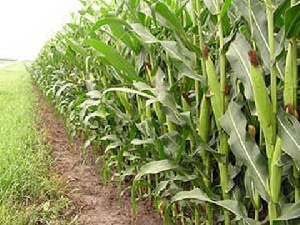The Vice-President and Country Manager of Kosmos Energy Ghana, Mr Joe Mensah, has urged the youth, farmers and Small and Medium Enterprises (SME’s) in the agricultural sector to take advantage of opportunities that are abound in agribusiness to develop the sector in the country.
“Agriculture is important to the socio-economic development of every country – it also transforms the livelihoods of farmers and makes life better for those who are engage in it” he added.
Mr. Mensah was speaking at a three-day Agribusiness Entrepreneurship Bootcamp organised by Diaspora Angel Investment Network (DAIN Network) with support from Kosmos Energy.
The DAIN Network focuses on agribusiness entrepreneurship training for youth, start-ups, Small and Medium Enterprises (SMEs) and co-operatives in the agribusiness - it utilises the skills of professionals in the Diaspora to provide mentorship and technical assistance.
The participants were provided the platform to gain a better understanding of how to scale a venture that makes sense for the local and global market and also learn how to partner and integrate into a multinational’s supply chain.
Also, they were taken through how to acquire tools and the framework to identify opportunities for product and market fit, target market, market segmentation, and competitive analysis as well as what investors look for before they invest in a business.
According to him, the current corporate support for agribusiness entrepreneurship and vocational training designed for young energetic youth, farmers to form agribusiness start-ups and small businesses is laudable -the initiative has come at the right time to give the needed boost to agricultural development in the country.
Therefore, he said it is important for all to rally around it and encourage the youth to take advantage of opportunities around to develop the agricultural sector.
He explained that the DAIN’s Bootcamp aligns well with Kosmos Innovation Center (KIC) programme, which seeks to Invest in Ghana’s future -one entrepreneur at a time.
The KIC he pointed out that is an exciting new social investment programme that is arguably the most important corporate effort in the history of Kosmos Energy in the country.
“The KIC represents the same contrarian thinking and entrepreneurial spirit that helped us get where we are today, except this time we play the role of an angel investor who is ready to support an entrepreneur who shows an exceptional desire to succeed; and that success translates into solving some of Ghana’s most pressing developmental challenges,” he added.
He said at present the first challenge KIC is undertaking is focusing on the nexus between Information Communication Technology (ICT) innovation and agriculture with the objective of inspiring budding entrepreneurs to use technology to transform Ghana’s agricultural sector.
“We launched the KIC programme in March 2016 this year with the integrative approach, which we are using collaboration, incubation and acceleration all at the same time to create a systemic change as an overall impact for the country” he said.
Mr. Mensah said it involves activities that target the entire value chain - from innovation challenges that stimulate new ideas (exploration) to funding expansion of existing commercial enterprises (production).
He affirms Komos Energy’s commitment to the project to the fact that since March, it has carried out a number of activities which has brought in young entrepreneurs with ICT and agribusiness background to participate in Agritech challenge.
“The Kosmos Energy collaboration as lead sponsors of this Bootcamp underlines the value it attaches to the agriculture sector as an important catalyst to boosting the country economy through youth development and job creation” he said.
Alhaji Limuna Mohammed Muniru, Minister of Food and Agriculture, in a speech read on his behalf, commended Kosmos Energy and DAIN Network for the initiatives aimed at addressing the challenges facing the agriculture sector.
He said the government will always welcome initiatives that support the growth of the country’s agriculture sector.
Business News of Tuesday, 9 August 2016
Source: B&FT

















